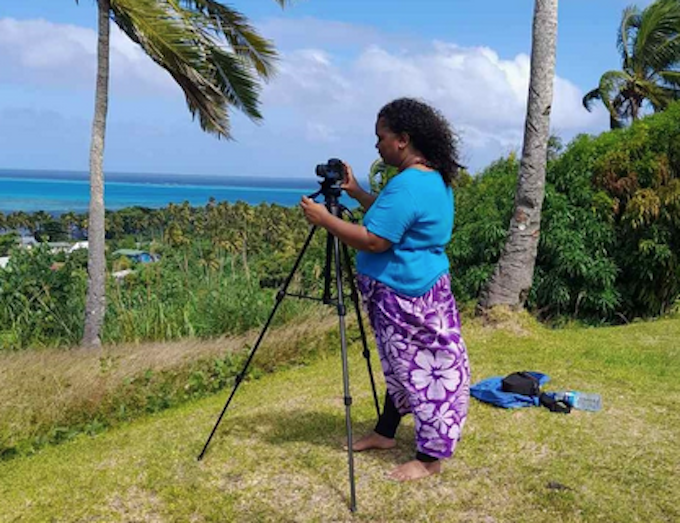By Akansha Narayan in Suva
Award-winning University of the South Pacific student journalist Sera Tikotikoivatu-Sefeti says Pacific voices on the climate fight need to be amplified for big nations to notice and be accountable for their actions.
The final-year student recently won the top prize in the tertiary level journalism students category at the 2022 Vision Pasifika Media Award with her two submissions on the environmental impacts of Tonga’s volcanic eruption on villagers of Moce Island in Fiji, and declining fish populations on the livelihoods of Fijian fishermen in Suva.
Tikotikoivatu-Sefeti said she was “beyond humbled” to receive the award and expressed her gratitude to God for the opportunity to amplify Pacific voices on climate change.
Originally from Dravuni village on beautiful Kadavu island, Tikotikoivatu-Sefeti said Pacific Island countries contributed the least towards climate change and global carbon emissions — but were the most affected.
“We are known to have a close relationship to the land and sea. To have that severely affected by big world countries whose activities are a big cause of this is unacceptable,” said the student editor of Wansolwara, USP Journalism’s award-winning print and online publication.

“I am passionate about environmental issues and human interest stories. I believe the Pacific stories should be ‘heard’ and ‘told’ from the Pacific Islanders’ perspective and words as it is a crisis they live by and survive every day.
“In Fiji, there aren’t enough journalists covering stories of the environment and how it’s affecting the people. I understand it can be a resource constraint and financially limited area.
Filling the gap
“I want to fill that gap in the industry and be able to do something I’m passionate about because it’s incredibly important to tell our people’s story.”
Tikotikoivatu-Sefeti dedicated her award to her family, USP Journalism students, staff, peers and indigenous women.
“So many times, we limit ourselves to what others perceive us, and it will take you to step out of your comfort zone to be able to experience your full capabilities,” said Tikotikoivatu-Sefeti, who was also a recipient of the EJN story grant for indigenous reporting.
She was recently one of the first recipients of the Native American Journalists Association and the Asian American Journalists Association (NAJA-AAJA) Pacific Islander Journalism Scholarship.
The Pacific Regional Environmental Programme’s (SPREP) acting communications and outreach adviser, Nanette Woonton, reaffirmed that SPREP recognised the critical role of all media in disseminating public information, education and influencing behaviour for the better.
“At the secretariat, we are excited to be able to offer the opportunity through these awards to honour and recognise the hard work by our media colleagues in protecting our people and the environment,” she said.
Vision Pasifika Media Award
The 2022 Vision Pasifika Media Award was facilitated through a collaboration between the SPREP, Pacific Islands News Association (PINA), Internews Earth Journalism Network (EJN), and the Pacific Environment Journalists Network (PEJN), with financial support from Aotearoa New Zealand.
The award comprised five categories — television news, radio production, online content, print media, and tertiary-level journalism students.
- Other category winners were: Fabian Randerath (television news), Jeremy Gwao (online content) and Moffat Mamu (print). Randerath was also named the overall winner for his story “Rising Tides – Precious Lives” on Fiji Broadcasting Corporation (FBC).
Akansha Narayan is a final-year student journalist at USP’s Laucala campus, Suva. USP and Wansolwara collaborate on Pacific stories, and for several years USP and the AUT’s Pacific Media Centre collaborated on a joint Bearing Witness climate journalism project.
Article by AsiaPacificReport.nz








